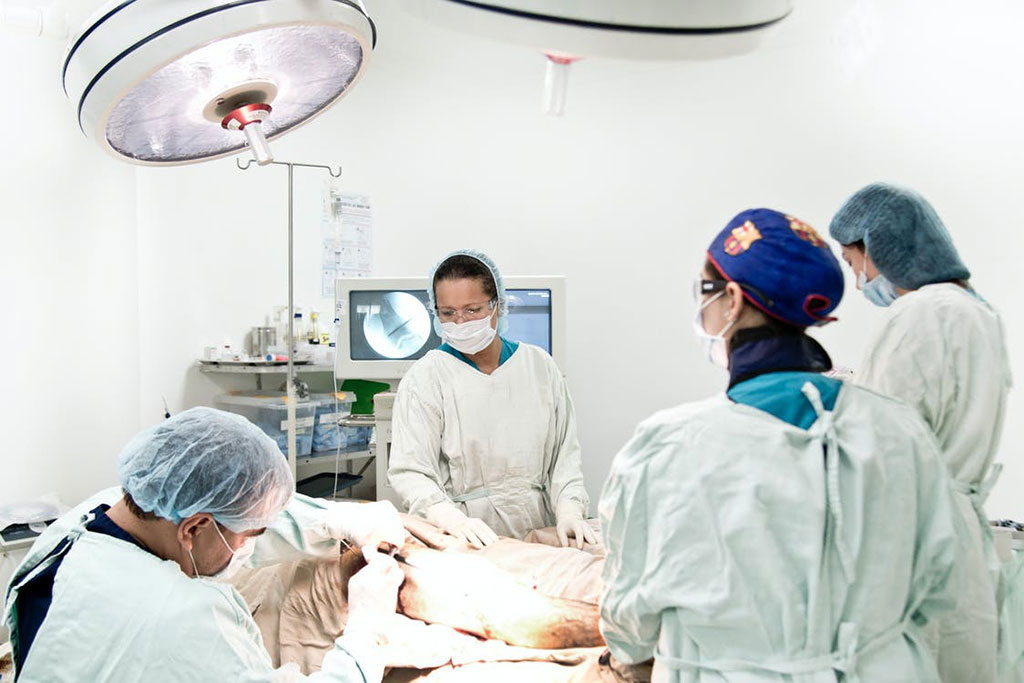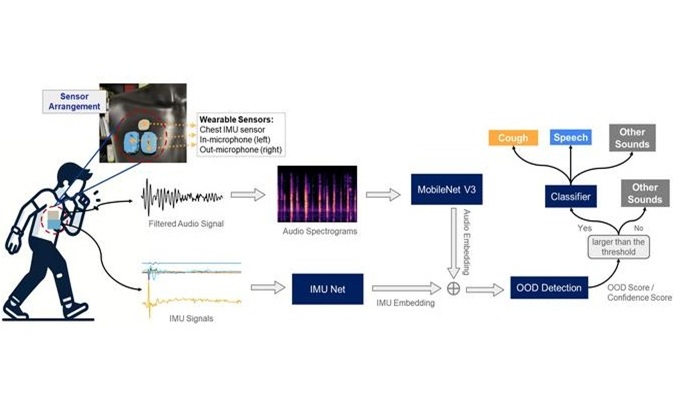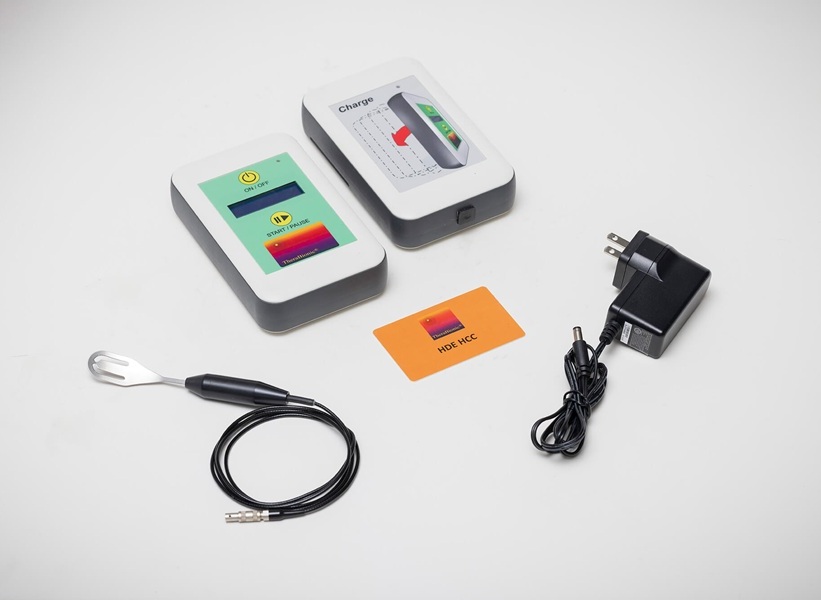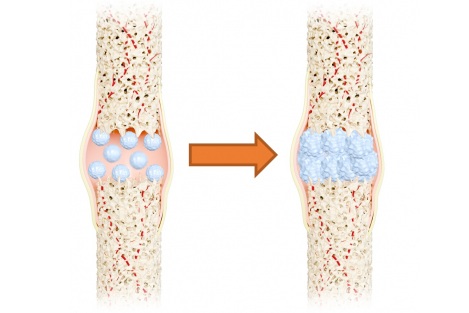Artificial Intelligence May Support Endoscopic Diagnosis of Early Gastric Cancer
|
By HospiMedica International staff writers Posted on 19 May 2022 |

Gastric cancer (GC) is the fifth most common cancer worldwide and the third leading cause of cancer death. Endoscopy is the most powerful tool for detection and diagnosis of GC, but the accuracy of detection depends on the experience of the endoscopists and is complicated by various factors of the gastrointestinal (GI) tract. Artificial intelligence (AI) for GC diagnosis has been discussed in recent years. The role of AI in early GC is more important than in advanced GC since early GC is not easily identified in clinical practice. However, past syntheses appear to have limited focus on the populations with early GC. Now, the findings of a new study support the diagnostic accuracy of AI in the diagnosis of early GC from endoscopic images.
Researchers at Taipei Medical University (Taipei, Taiwan) conducted a systematic review from database inception to June 2020 of all studies assessing the performance of AI in the endoscopic diagnosis of early GC. Studies not concerning early GC were excluded. The outcome of interest was the diagnostic accuracy (comprising sensitivity, specificity, and accuracy) of AI systems. Study quality was assessed on the basis of the revised Quality Assessment of Diagnostic Accuracy Studies. Meta-analysis was primarily based on a bivariate mixed-effects model. A summary receiver operating curve and a hierarchical summary receiver operating curve were constructed, and the area under the curve was computed.
The researchers analyzed 12 retrospective case control studies (n=11,685) in which AI identified early GC from endoscopic images. The pooled sensitivity and specificity of AI for early GC diagnosis were 0.86 (95% CI 0.75-0.92) and 0.90 (95% CI 0.84-0.93), respectively. The area under the curve was 0.94. Sensitivity analysis of studies using support vector machines and narrow-band imaging demonstrated more consistent results. For early GC, this was the first synthesis study on the use of endoscopic images in AI in diagnosis. Based on the findings, the researchers concluded that AI may support the diagnosis of early GC. However, the collocation of imaging techniques and optimal algorithms remain unclear. Nevertheless, competing models of AI for the diagnosis of early GC are worthy of future investigation, according to the researchers.
Related Links:
Taipei Medical University
Latest Surgical Techniques News
- Novel Glue Prevents Complications After Breast Cancer Surgery
- Breakthrough Brain Implant Enables Safer and More Precise Drug Delivery
- Bioadhesive Sponge Stops Uncontrolled Internal Bleeding During Surgery
- Revolutionary Nano Bone Material to Accelerate Surgery and Healing
- Superior Orthopedic Implants Combat Infections and Quicken Healing After Surgery
- Laser-Based Technique Eliminates Pancreatic Tumors While Protecting Healthy Tissue
- Surgical Treatment of Severe Carotid Artery Stenosis Benefits Blood-Brain Barrier
- Revolutionary Reusable Duodenoscope Introduces 68-Minute Sterilization
- World's First Transcatheter Smart Implant Monitors and Treats Congestion in Heart Failure
- Hybrid Endoscope Marks Breakthrough in Surgical Visualization
- Robot-Assisted Bronchoscope Diagnoses Tiniest and Hardest to Reach Lung Tumors
- Diamond-Titanium Device Paves Way for Smart Implants that Warn of Disease Progression
- 3D Printable Bio-Active Glass Could Serve as Bone Replacement Material
- Spider-Inspired Magnetic Soft Robots to Perform Minimally Invasive GI Tract Procedures
- Micro Imaging Device Paired with Endoscope Spots Cancers at Earlier Stage
- AI Spine Model Could Reduce Surgical Risks
Channels
Critical Care
view channel
Origami Robots to Deliver Medicine Less Invasively and More Effectively
Delivering medicine to ulcers or other internal sites often requires invasive procedures that can disrupt surrounding tissues and lengthen recovery times. Traditional magnetic actuators used in soft robotics... Read more
Improved Cough-Detection Technology Aids Health Monitoring
Coughing serves as an important biomarker for tracking a variety of conditions and can help monitor the progress of respiratory diseases or predict when someone’s asthma is being exacerbated.... Read moreSurgical Techniques
view channel
Novel Glue Prevents Complications After Breast Cancer Surgery
Seroma and prolonged lymphorrhea are among the most common complications following axillary lymphadenectomy in breast cancer patients. These postoperative issues can delay recovery and postpone the start... Read more
Breakthrough Brain Implant Enables Safer and More Precise Drug Delivery
Delivering medication directly to specific regions of the brain has long been a major challenge in treating neurological disorders. Current implants and infusion systems typically reach only one or two... Read morePatient Care
view channel
Revolutionary Automatic IV-Line Flushing Device to Enhance Infusion Care
More than 80% of in-hospital patients receive intravenous (IV) therapy. Every dose of IV medicine delivered in a small volume (<250 mL) infusion bag should be followed by subsequent flushing to ensure... Read more
VR Training Tool Combats Contamination of Portable Medical Equipment
Healthcare-associated infections (HAIs) impact one in every 31 patients, cause nearly 100,000 deaths each year, and cost USD 28.4 billion in direct medical expenses. Notably, up to 75% of these infections... Read more
Portable Biosensor Platform to Reduce Hospital-Acquired Infections
Approximately 4 million patients in the European Union acquire healthcare-associated infections (HAIs) or nosocomial infections each year, with around 37,000 deaths directly resulting from these infections,... Read moreFirst-Of-Its-Kind Portable Germicidal Light Technology Disinfects High-Touch Clinical Surfaces in Seconds
Reducing healthcare-acquired infections (HAIs) remains a pressing issue within global healthcare systems. In the United States alone, 1.7 million patients contract HAIs annually, leading to approximately... Read moreHealth IT
view channel
Printable Molecule-Selective Nanoparticles Enable Mass Production of Wearable Biosensors
The future of medicine is likely to focus on the personalization of healthcare—understanding exactly what an individual requires and delivering the appropriate combination of nutrients, metabolites, and... Read moreBusiness
view channel
Philips and Masimo Partner to Advance Patient Monitoring Measurement Technologies
Royal Philips (Amsterdam, Netherlands) and Masimo (Irvine, California, USA) have renewed their multi-year strategic collaboration, combining Philips’ expertise in patient monitoring with Masimo’s noninvasive... Read more
B. Braun Acquires Digital Microsurgery Company True Digital Surgery
The high-end microsurgery market in neurosurgery, spine, and ENT is undergoing a significant transformation. Traditional analog microscopes are giving way to digital exoscopes, which provide improved visualization,... Read more
CMEF 2025 to Promote Holistic and High-Quality Development of Medical and Health Industry
The 92nd China International Medical Equipment Fair (CMEF 2025) Autumn Exhibition is scheduled to be held from September 26 to 29 at the China Import and Export Fair Complex (Canton Fair Complex) in Guangzhou.... Read more
















